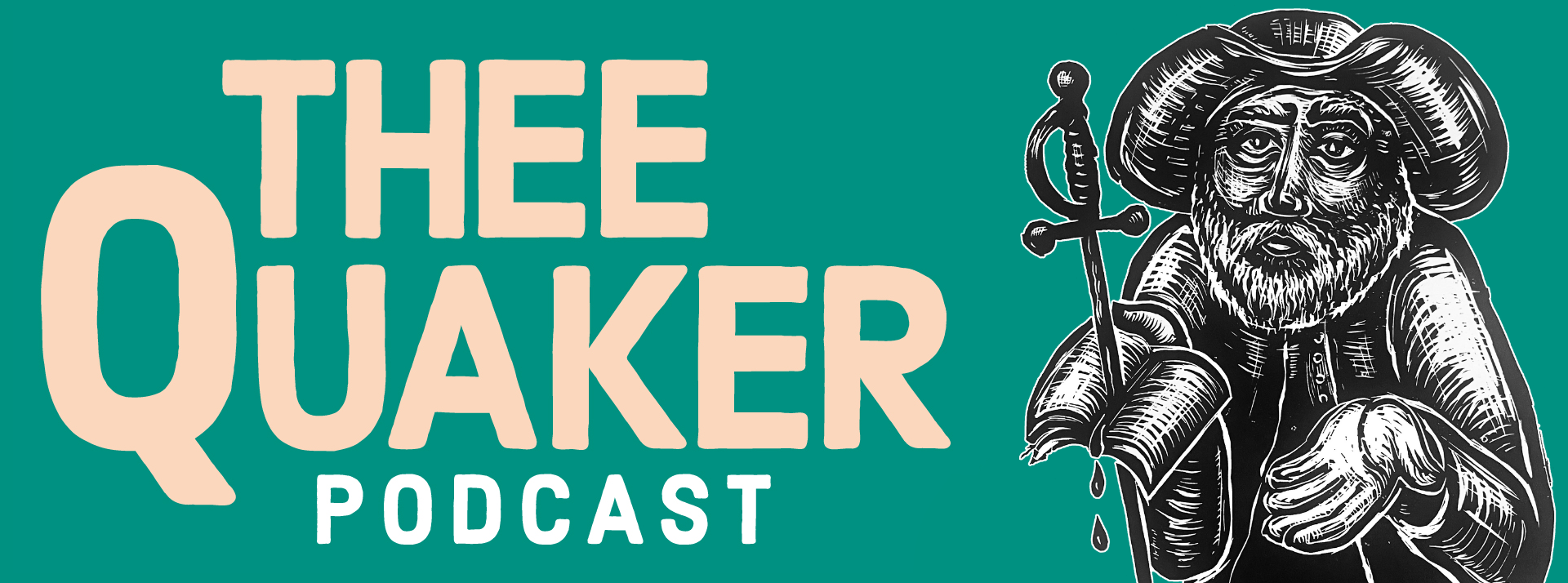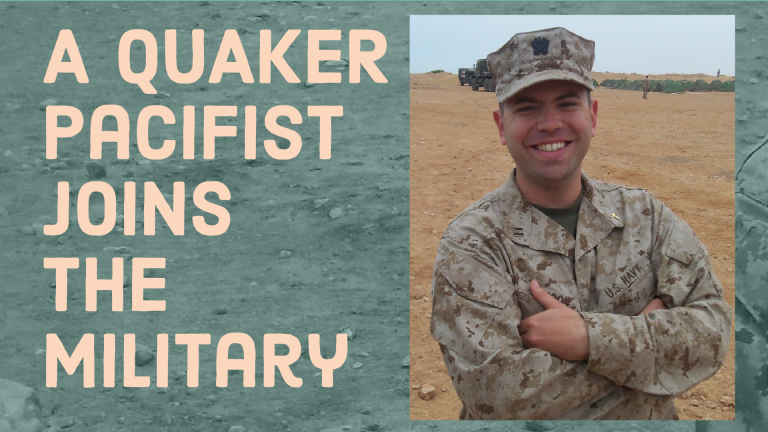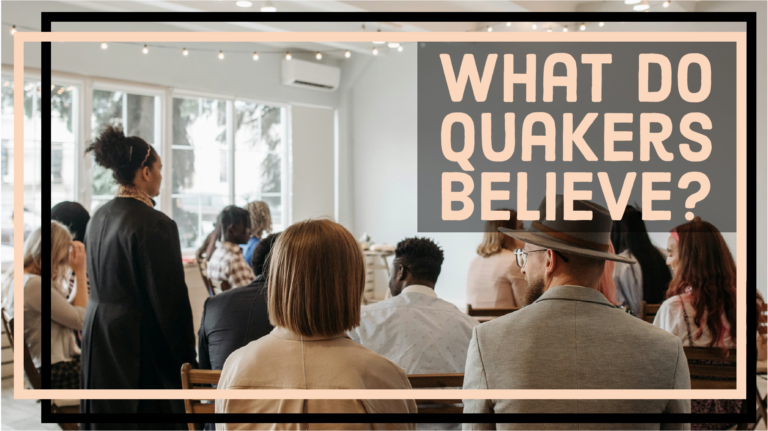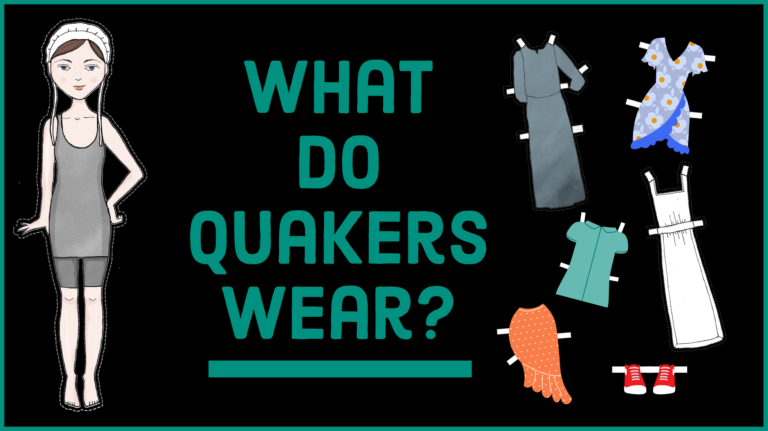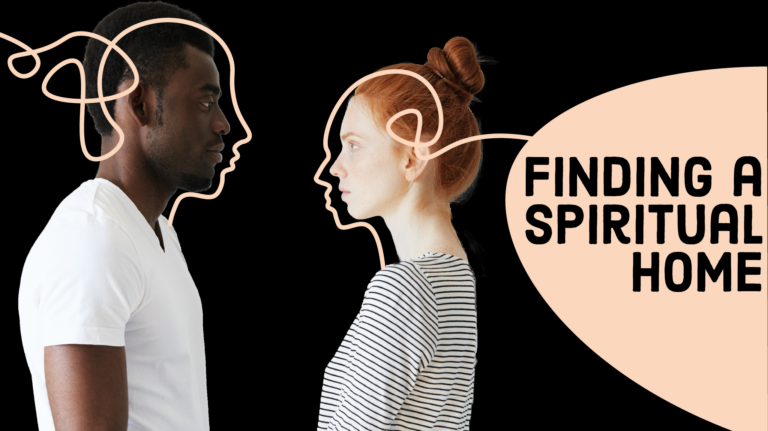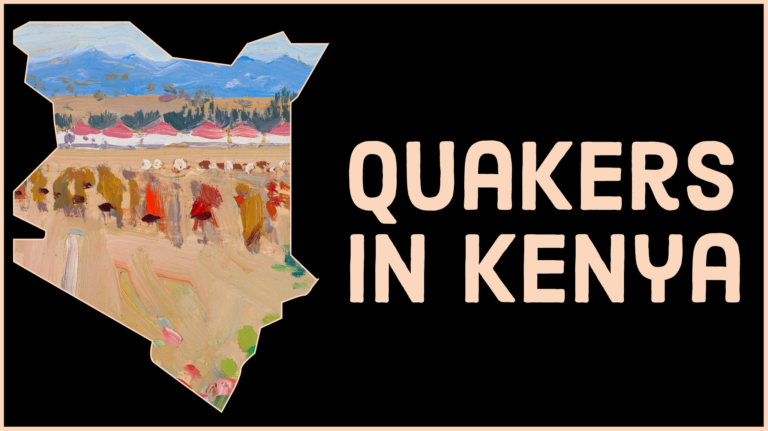Undoing Racism Within And Without: A Black Quaker’s Pledge
“It’s my responsibility and obligation as a Quaker to keep Dr. Martin Luther King’s dream alive,” says James Varner. And that’s what he’s done for more than 60 years. In this episode, James shares his passion to promote equality and love in Quaker circles and beyond.
Subscribe so you don’t miss an episode!
Leave a comment below to share your stories and thoughts!
Download the transcript and discussion questions.
Discussion Questions
- Review James Varner’s pledge. What stands out to you?
- James says he was convinced to become a Quaker when he heard Friends in worship “saying the same things that I was thinking at the time.” Can you remember an experience where you felt a similar kinship? What effect did that have on your relationship with the Spirit?
James Varner: I just feel very fortunate to be a Quaker and one of the most powerful and more important parts of Quakerism is, my friends, there is something of God in every human being. And if this is so, and I know it is, why do we treat each other in unfriendly ways? Why does the color of my skin make a difference? …God does not discriminate, he does not discriminate, straight, gay, whatever. And we should do likewise.
Georgia: I’m Georgia Sparling and we’re back for our first bonus episode!
So, Quakers and Civil Rights was one of our themes this past year. We spoke with David Hartsough who shared his experiences of getting threatened when he tried to integrate segregated restaurants. We spoke with George Lakey who co-wrote the de facto manual on nonviolent direct action. And we profiled Bayard Rustin — speaking with loved ones and friends who knew this giant of the Civil Rights Movement. And don’t worry, I included a link to all of those episodes in the show notes in case you missed them.
So today we’re adding to that compendium with a guest who was suggested to us by a listener who encouraged us to seek out more stories of African American Friends involved in civil rights. And I’m so glad that they did.
James Varner is a Friend who was involved in the Civil Rights Movement, and has remained active even as he’s now in his ninth decade.
He has been a force in the Bangor, Maine area for many years. He started organizations, mentored students, spoke at protests, and generally worked to bring about a more equitable and just society.
James currently lives with one of his children in New Jersey and I recently had the pleasure of speaking with him remotely. Today’s episode will actually be a combination of my interview with him and an interview he did a few years ago. So let’s get started.
Georgia: In 2019, Dr. Harold Weaver sat down with James Varner for an interview as part of the Black Quaker Project. That project highlights the work and concerns of Quakers of Color worldwide.
At the time, James was 86 years old and he began with a somewhat lengthy thought experiment.
He tells the audience to close their eyes — “no cheating” — and instructs them to hold their left thumb in their right hand and to think of that thumb as his thumb.
James: Can you feel my color? Can you? Answer me! You said, “No”, you can’t. No, you cannot feel my color.
Georgia: He goes on to say that the thumb can even feel like the thumb of someone you know and love. It’s a little quirky, but James is coming to a point.
James: We’re all human beings. I want you to carry this with you for the rest of your life. When you look at another human being, see beyond the color of the skin because the color of the skin does not matter! It’s another human being! And if you can treat that human being the way you want to be treated and the way your loved ones want to be treated, we will have a much better world, a happier world. This business of racism uh, will be, you know, non-existent.
Georgia: Throughout this interview James often gets animated, as you just heard. When he does, his eyes widen, he raises his voice and, he leans into the camera lens. When I interviewed James six years later, he was a bit less animated — maybe because we were speaking from computer to computer — but he was no less engaging.
Back in 2019, James had already been diagnosed with dementia, and it’s thankfully been slow moving, but it was more pronounced in our discussion. James mentioned several times that it’s affected his recall, his thinking is more fuzzy. Yet, that does not diminish the legacy that he hopes to leave behind, that of a man who has promoted equality and love. This has been bolstered by the Quakerism he adopted as a young father, and, he hopes, it’s had an effect on the Quakers he’s worked with.
Georgia: James began attending his first Quaker meeting in 1972 in Plainfield, New Jersey. At the time, he was teaching high school science and had a young, interracial family. The Plainfield Meeting welcomed them when other houses of worship did not.
James: Eventually my family joined, but I didn’t join for a while. The experience that I had that really brought me to be a Quaker is I found that sitting in the silence, and hearing people speak, they were saying the same things that I was thinking at the time. I said, this is amazing. What’s going on here? And I found sitting in the silence, I would be moved to share things that was lying below the surface.
Sitting in the silence gave life to thoughts that I had and gave direction to my life. And that’s why I became a Quaker and I’m still a Quaker.
I just feel very fortunate to be a Quaker. One of the most powerful and more important parts of Quakerism is, my friends, there is something of God in every human being. And if this is so, and I know it is, why do we treat each other in unfriendly ways? Why does the color of my skin make a difference? God does not discriminate. Straight, gay, whatever. And we should do likewise.
Georgia: Quakerism was a bit of a departure from the religion James had been introduced to as a kid, but his adult life in general looked a lot different than his early years.
James: My father was a truck driver. He’s a big tall guy, about 6’6″. And my mother, Mamie Varner, she was from Birmingham, Alabama, and so was my dad. And she had a seventh grade education, but she was a genius.
Georgia: James spent his early years in New Jersey, but while he was still young his father died of pneumonia, leaving his mother with six kids to raise.
James was the fourth kid in his family and it sounds like he was his mother’s favorite. He remembers that she would sing with him and take him to the theater, something he later realized she didn’t do with his brothers and sisters.
But her religious devotion meant that she took all of her children to a Baptist church every week. He also remembers her often praying aloud for him and his siblings.
James: I believe my mother had mental problems, but she was a very beautiful religious person. In the middle of the night, my mother would say, oh God, she’d be crying and talking like 2 a.m. in the morning.
Georgia: By this time, the family had relocated from New Jersey to the Bronx in New York City. One day, a social worker visited their home and asked if James’s mother would allow him to send summer Camp in Princeton, New Jersey. It was organized by the Big Brothers and Big Sisters program.
James: That camp had a profound effect as far as turning my life around and pointing me in the very successful direction that I’ve had during the course of my life.
Georgia: While in New Jersey, James visited the home of one of the other students there and ended up, with his mother’s permission, being adopted into that family. He kept in contact with his family in New York but attended high school in Princeton. He was on the track team and became vice president of his senior class and was also put forward for a scholarship to go to college.
At the recommendation of one of his coaches, James attended the University of Maine.
This was in the 1950s and James was one of about five students of color on the whole campus. He says he had a generally positive experience. He studied chemistry, and as an athlete, he was welcomed into the community and even recruited as the first Black student in the Phi Eta Kappa fraternity.
He even got in good with the president.
James: I used to go in and visit him every week. I thought that was what you were supposed to do. Looking back on it, I must have been the pain in the you-know-what.
Georgia: The president did help James out, finding him extra scholarship money to help with his schooling.
James was part of the ROTC, that’s the Reserve Officers’ Training Corps, and after college he entered the military with tours in Okinawa, Hawaii, and the Marshall Islands. He also got married. His wife, Florence Ann Johannson was Swedish. The two had met in college.
After the military they settled in New Jersey where their family grew to include three sons and one daughter.
This was not only the era of his life where he discovered Quakers, but also when he leaned into civil rights activism. Here’s a clip from my interview with James.
James: I used to go down and help register African Americans who thought they shouldn’t be voting and stuff of that nature. I was inspired by Dr. King and I went on different events.
We went on trips to the South, knocking on doors and helping individuals, African Americans, to register.
Georgia: James went door to door encouraging Black Southerners in Mississippi and Alabama to vote. When I talked to him, he didn’t recall much of that experience but the emotional weight of it has stayed with him.
James: They were afraid because maybe beat them or punish them if they voted.
And we probably caused a lot of problems for individuals that we helped, after we probably left. I found out that some African Americans suffered. So while we were trying to do some good, we also caused a lot of pain and suffering for them.
Georgia: James attended the March on Washington in 1963 and walked in the procession of mourners at Martin Luther King’s funeral procession five years later. Here James is speaking in 2019.
James: When Dr. Martin Luther King was assassinated in 1968, it really hurt me a great deal. And I just couldn’t understand how a gift to this world, such a beautiful human being, could be assassinated.
Georgia: It was in this era that James became president of the NAACP in Plainville, New Jersey. That’s the National Association for the Advancement of Colored People. He also began working in community development, eventually becoming executive director an anti-poverty program.
James: We operated neighborhood centers where we helped identify low-income people, help them with medical problems, food problems, tax problems, getting jobs.
And we also operated Head Start programs. Those are preschool programs, you’re probably aware, educating low-income children. And boy, that was so beautiful. That’s one of the most enjoyable parts of that job.
Georgia: This work really tied into the ideals he’d learned from Martin Luther King, as he said in the 2019 interview.
James: It’s my responsibility and obligation as a Quaker to keep Dr. Martin Luther King’s dream alive. Make that dream a reality where little white boys and black boys and white girls and black girls can sit down to that table to justice and love one another. And I think it’s possible.
Georgia: After the break, James reflects on the racism he experienced among Friends and the work he’s done to bring equality to Bangor, Maine.
Jon Watts: Hi friends. It’s Jon here. Well, it’s been quite a year. You know, beside everything that’s been in the news, we here at Thee Quaker Project have been very busy. There’s this project, the podcast, which you’re already familiar with. We just passed 100,000 downloads. We have listeners in 132 countries, and this year we won a big award, Best in Class from the Associated Church Press. But did you know we have a vision that goes far beyond this podcast. This year, we launched our second project, which now over 2,000 people wake up to every day, and we’re in the pilot phase of our third project where we partner with Quaker meetings to tell their stories.
So why are we doing all of this? Well, we believe that those who control the narrative control the future. We believe that times of great upheaval are times of great opportunity, and we believe in the power of faithful storytelling. So Friends, it’s giving season, and so I’m here to ask for your support. Thee Quaker Project is a 501c3, and that means that we run on donations. We couldn’t do any of this work without your help.
You know, we don’t have Elon Musk money, so we’re not going to be able to buy a social media platform, but with your help, this expanding network of media projects can have a serious impact, and it already has, so I’m going to pop into your feed once a year and ask you to please consider a larger one time gift to the Quaker project that will help build this platform for Quakers today and many years to come together, we’re bringing Quakerism into the 21st century.
You can find more details at theequaker.org/support, and the link will be in the show notes. Thank you so much.
Georgia: After more than a decade in New Jersey, James and his wife moved their family to Maine to be near her parents. In doing so, he also returned to his old alma mater, the University of Maine, where he taught and worked as a minority recruiter in the admissions office.
During that time he became involved in the New England Yearly Meeting, where he had mostly good experiences. He told me that about 90 percent of Friends he’s encountered were committed to equality, but he did have negative encounters with some of that 10 percent. Back in 2019, he spoke at some length about this.
James: I’ve attended a lot of yearly meetings. As a black person, I’ve been calling the N-word. I’ve come almost to blows at a yearly meeting in Maine at Bowdoin College where another Quaker thought it was all right to call me Jasper. He said, You shouldn’t be offended. That’s what my folks call you. I’ve been in conversations at yearly meetings where I’ve sort of been, I’ve been ignored in the crowd. I’m in the crowd of five or six people, white Quakers. I’ve been talked around.
We have racists that call themselves Quakers, but I don’t believe that an authentic real Quaker would harbor these kinds of attitudes and express discrimination in this way because if you’re a damn Quaker you believe that there’s something of God in every human being. Black, yellow, red, fat, skinny, queer, straight.
Racism and discrimination is evident in the Quaker movement. And what do I do? I try to, when I have an opportunity, I have a platform, let people know that I’m a Quaker, and I happen to be a Quaker of color, and that God does not discriminate.
Georgia: Of course, that hasn’t made James immune to racism or the threat of violence in the greater world. He shared this story with me.
James: One of the most horrific experiences, my dear, that I had in my life was Bar Harbor, where I was visiting there. A group of about seven or eight white guys was saying they were going to kill me, but I was in good shape. I was able to run. But at that experience, my adrenaline started secreting. You know you feel you’re going to be actually killed. I’ve never had that experience again in my life, but I think I was fortunate to get away.
Georgia: It was another hate crime that prompted James to write a pledge that he hopes will inspire Quakers and non-Quakers to commit to examine and address racism in themselves. In 1997, a 49-year-old Black Texan named James Byrd was brutally killed by a group of white men. I’ll warn you that the following description is graphic.
James: Who captured him and took him and chained him to the back of a truck and dragged him until he was decapitated and I just felt that in it. It’s the most, the worst feeling that I, one of the worst feelings I ever had in my life. And out of that experience, you know, I was meditating and I was just so sad for a long time. I was very dysfunctional.
And I was inspired to write this pledge.
Georgia: James shared it with me, but I think that the 2019 version best captures the energy and essence of the pledge.
James: It’s called my personal pledge to undo racism and discrimination in America. One, I pledge first to take a look at my own racist attitude, behavior, and thinking, which I may have unconsciously acquired over my lifetime from the media, home, workplace, and educational system.
Two, I pledge to share whenever possible the 1995 findings of the genetic discovery through the scientific study of DNA, which proves that all human beings originate from the same strand of life, thus making us all related as brothers and sisters who share a common heritage.
Three, I pledge to treat all human beings, regardless of their origin, as I want to be treated and as I want my own family and my loved ones treated.
Four, I pledge to stress the beauty of diversity and of having a respect for all human beings whenever possible in my home, at school, at my workplace, and socially.
Five, I pledge to the best of my ability to work daily to combat racism wherever I see it.
Six, I pledge to help form coalitions whenever possible with religious, educational, service, and social organizations to discuss and work toward the elimination of all traces of personal and institutional racism and discrimination toward others who seem different from myself with regard to race, color, sex, creed, national origin, disability, sexual orientation or human male or female sexual preferences.
Seven, I pledge to treat the earth and all living creatures with respect and care. I pledge to review my pledge daily in order to remain focused and dedicated.
Georgia: James’s work has almost always been about getting more people involved in the pursuit of racial equality. And aside from that 10 percent, James found that most Quakers were interested in creating a more racially just world. Among Quakers, James spoke a number of times on the topic and he was an active member of the Racial, Social, and Economic Justice Committee of New England Yearly Meeting. Plus, much of his social justice work in Maine was supported by Friends.
James was the president of the Greater Bangor Area NAACP, a role that he held for 15 years.
James: We did things like establish a Martin Luther King Day breakfast at the University of Maine which is still going on to this day and has attendance of four and five hundred people. My meeting also helped me with establishing the Black Student Union at the University of Maine, which is still going on today.
Georgia: James mentored students of color at the University of Maine, and as one former student said, he was “the elder statesmen” that they looked up to.
He also participated in rallies and protests, including a Black Lives Matter anti-racism event at the Maine State House in 2020. And he established the Juneteenth celebration in the Bangor area, which has now been an annual event. James, who has been living with his son Carl in New Jersey, said he even snuck up to Maine this year for Juneteenth.
James: My son, he didn’t want me to drive up the 500 mile unit that I could.
But I snuck up there and I got up to Connecticut and I called and said, hey, you dad’s on his way to Maine.
Georgia: Obviously, this work is deeply personal for James. Maybe even more so as his multiracial family has grown.
James: I hurt and I cry sometimes before I go to sleep at night thinking about my three sons and my daughter and my 10 grands because I know the evil that some of my pink brothers and sisters have out there and are capable of doing.
And I shudder sometimes when I hear the phone ring in the morning that someone is going to call me and say, something happened to one of my children. This is a terrible burden to have to carry. And I shouldn’t have to carry it, but I do carry it. And I damn sure don’t carry it with a badge of honor.
Georgia: Yet James’s work has come with honors. In 2022, he won the Bernard Lown ’42 Alumni Humanitarian Award from the University of Maine.The award recognizes “outstanding service and impact through saving lives, relieving suffering, and promoting human dignity.” Here’s a clip from the video celebrating James’ award and you’re going to hear from former student Aaron Dashiel.
Aaron Dashiel: The number of people he’s influenced and the number of minds that Jim’s opened, I couldn’t even begin to guess that number. There’s no doubt that things are better in that state because of Jim Varner.
Georgia: James has slowed down a bit, which seems perfectly reasonable for a man in his 90s. But he still remains passionate about the necessity of loving others and treating them with respect.
James: And I think this is one of the most important contributions that I think I’ve made. I just want to continue being a Quaker and reaching as many human beings as possible to enlighten them and to make them feel what it’s like for other individuals, you know, in our society that need help.
What I want to see us do is to do something and not only Quaker churches but in all churches in our communities to affect change at the governmental levels, all levels of government, not only the federal government but state government and local community government to deal with this problem of mistreatment of other human beings and to think about the fact that we are all human beings and then you need to be treated in the same way. It’s gonna take the work of individuals like Y-O-U. You’re a human being and you should feel an obligation to help human beings. It’s not selfish, it’s L-O-V-E. You know, love, it’s beautiful thing.
Georgia: That last clip was from James’s 2019 interview. I don’t think his sentiments have changed much in that time. He did say that he now considers himself born again after attending Bible study with his son and he said it’s a message he wants to take to Quakers.
James attends his son’s church as well as the nearby Quaker meeting.
As we were came to the end of our conversation, James said this to me and I think it’s part of the reason that we exist here at Thee Quaker Podcast. To tell stories that might go unnoticed, to help preserve a record of the work that Quakers have done at every level — from the James Varners who did the work in their communities to the Bayard Rustins who had a national stage. There is no ranking system here, just a deep appreciation for the conviction and action of these Friends.
I want to close with one of the last things James said to me during our interview and I think it points to a life well lived. He said, “I was once glowing brightly. My glow is a little dimmer but it’s still full of love and I’m happy and blessed with it.”
Georgia: Thank you for listening to this bonus episode of Thee Quaker Podcast. If you would like to learn more about James Varner, you can find a link to his full interview with Dr. Harold Weaver on our episode page. I also encourage you to go back and check out our other Civil Rights focused episodes from this season. There is a link in our show notes.
I would like to say a big thank you to the University of Massachusetts Amherst who allowed us to use this interview from their archives. The interview is also part of the Black Quaker Project, of which Dr. Weaver is a/the founder. There are many more interviews in their archives, and we’ll include that link in our episode notes as well.
This episode was produced and hosted by me, Georgia Sparling. Jon Watts wrote and performed the music. Studio D mixed the episode.
If you like what you hear, please consider becoming a Podcast supporter — you can do that on a monthly or a yearly basis. Head to QuakerPodcast.com and click on Support to learn more.
Recorded, written, and edited by Georgia Sparling.
Original music and sound design by Jon Watts (Listen to more of Jon’s music here.)
Mixed and mastered by Studio D.
Supported by listeners like you (thank you!!)
This episode features an interview from the University of Massachusetts Amherst’s Special Collections and University Archives and was conducted by Harold D. Weaver, August 26, 2019. Watch the complete interview.
Referenced in this episode:
James Varner’s Pledge
One, I pledge first to take a look at my own racist attitude, behavior, and thinking, which I may have unconsciously acquired over my lifetime from the media, home, workplace, and educational system.
Two, I pledge to share whenever possible the 1995 findings of the genetic discovery through the scientific study of DNA, which proves that all human beings originate from the same strand of life, thus making us all related as brothers and sisters who share a common heritage.
Three, I pledge to treat all human beings, regardless of their origin, as I want to be treated and as I want my own family and my loved ones treated.
Four, I pledge to stress the beauty of diversity and of having a respect for all human beings whenever possible in my home, at school, at my workplace, and socially.
Five, I pledge to the best of my ability to work daily to combat racism wherever I see it.
Six, I pledge to help form coalitions whenever possible with religious, educational, service, and social organizations to discuss and work toward the elimination of all traces of personal and institutional racism and discrimination toward others who seem different from myself with regard to race, color, sex, creed, national origin, disability, sexual orientation or human male or female sexual preferences.
Seven, I pledge to treat the earth and all living creatures with respect and care. I pledge to review my pledge daily in order to remain focused and dedicated.
